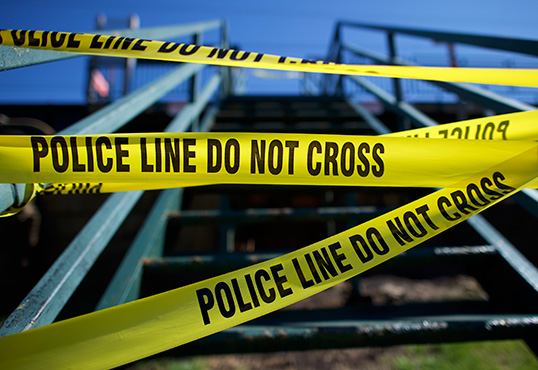North Carolina Governor Pat McCrory signed a controversial bill into law on Monday (July 11) that limits public access to video shot by police body and dashboard cameras.
The new law states that any civilians seen or heard in the video (or their representatives, like lawyers and family members) can request access to the footage, but that the law enforcement agency has final say on if they’re allowed to view it. If denied, the person seeking access could appeal to Superior Court.
The Governor signed House Bill 972 into law in front of a line of uniformed officers.
“Technology like dashboard cameras and body cameras can be very helpful, but when used by itself technology can also mislead and misinform, which causes other issues and problems within our community,” McCrory said.

AD LOADING...
Body-worn cameras have been implemented by many forces in America and around the world, with the purpose of increasing accountability between officers and civilians.
Since the bill was first introduced in April, several high-profile police shootings around the country have reignited the debate around the use of deadly force by officers. Last week, Alton Sterling and Philando Castile were both shot and killed by police in separate cases in Louisiana and Minnesota. In both cases, video recorded by civilians was posted online and quickly went viral. That same week, a sniper killed five officers on duty at a rally protesting the killings of Sterling and Castile.
McCrory addressed these incidents before signing the bill, reports WRAL.
“It was news that shook this nation. It was news that shook communities. It was news that shook law enforcement communities throughout the United States and right here in North Carolina,” McCrory said. “Sadly, our country and state have been through these types of situations before. We’ve learned from them, we’ve recovered from them and we’ve united after them. I’ve seen it first hand as a mayor.”

AD LOADING...
Susanna Birdsong, Policy Counsel for the ACLU of North Carolina spoke out against the law in a statement.
“Body cameras should be a tool to make law enforcement more transparent and accountable to the communities they serve, but this shameful law will make it nearly impossible to achieve those goals,” she said in a statement. “People who are filmed by police body cameras should not have to spend time and money to go to court in order to see that footage. These barriers are significant and we expect them to drastically reduce any potential this technology had to make law enforcement more accountable to community members.”




